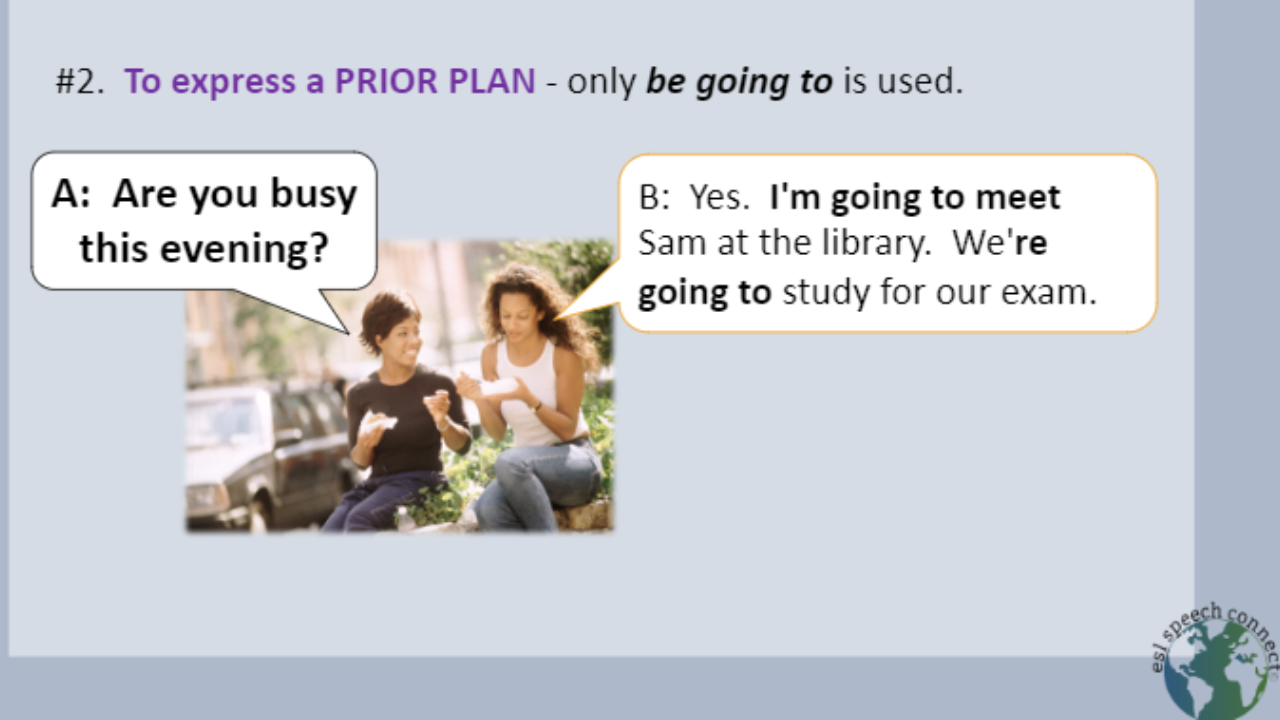Simple Future Tense
Apr 10, 2024
Try this exercise!
1.To express a PREDICTION – will or be going to 2.To express a PRIOR PLAN – only be going to 3.To express WILLINGNESS - only will is used.
The simple future is used to express an action or state of 'be' that will happen in the future.
-
Use "will" or "be going to". "Shall" is not commonly used in American English.
-
In speaking, "going to" is usually pronounced as "gonna" (connected and reduced speech).
Structures:
will + simple verb Example: will visit, will be, will read, will see, will study, etc.
-
.They will visit us tomorrow. I will be ready for the exam.
am/is/are going to + simple verb Example: am/is/are going to visit, am/is/are going to read, is/are going to see, is/are going to study, etc.
-
They are going to visit us tomorrow.
will visit be going to
•I will visit I am going to visit •You (sing./pl) will visit you are going to visit •He/she/it will visit he/she/it is going to visit •We will visit we are going to visit •They will visit they are going to visit
•Will is usually contracted with personal pronouns in both speaking and informal writing.
1. I’ll stay. I’m going to stay. You'll stay. You’re going to stay
2. He’ll do well on the test. …He’s going to do well on the test. OR gonna do well..
3. It'll rain tonight. It’s going to rain tonight.
Will is often contracted with nouns and with other pronouns in speaking but not in writing.
1.The store’ll be closed tomorrow.* The store’s going to be closed tomorrow.
(Do not write “store will” as a contraction. Write out the full structure.)
RULES:
#1. To express a PREDICTION – a statement about something he/she thinks will be true or will occur in the future.
•either will orbe going to is possible.
1. According to the weather report, it will be cloudy tomorrow.
2. According to the weather report, it is going to be cloudy tomorrow.
•There is no difference in meaning between the two sentences above.
#2. To express a PRIOR PLAN - only be going to is used.
A: Are you busy this evening? B: Yes. I'm going to meet Sam at the library. We're going to study for our exam.
In the above situation, B has already made prior plans to meet and study at the library, so she uses be going to.
#3. To express WILLINGNESS - only will is used.
For example:
A: The phone's ringing. B: I'll get it.
•In this example, B is saying "I am willing to get the phone." He is not making a prediction and he did not have any prior plan to answer the phone. He uses will to show his willingness to answer the phone.
For example:
A: I don't understand this math problem. B: Ask your teacher. She'll help you.
In this example 2, B feels sure that the teacher is willing to help.
